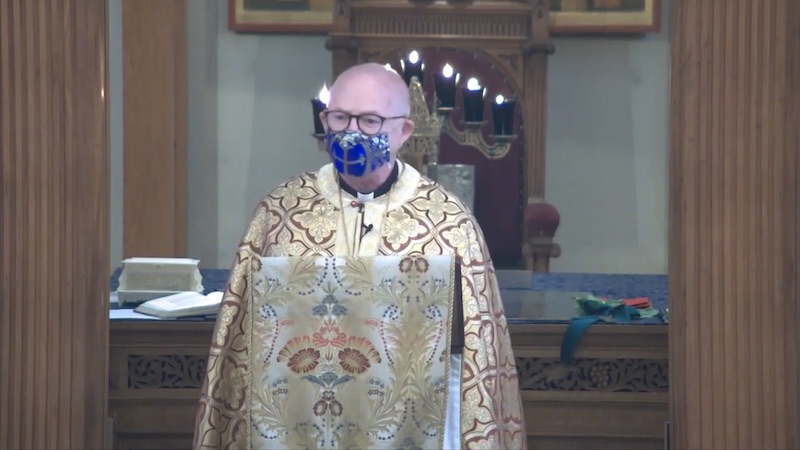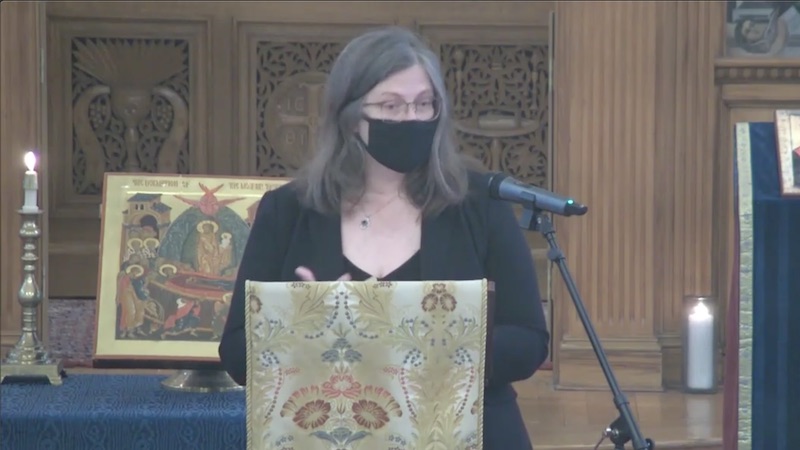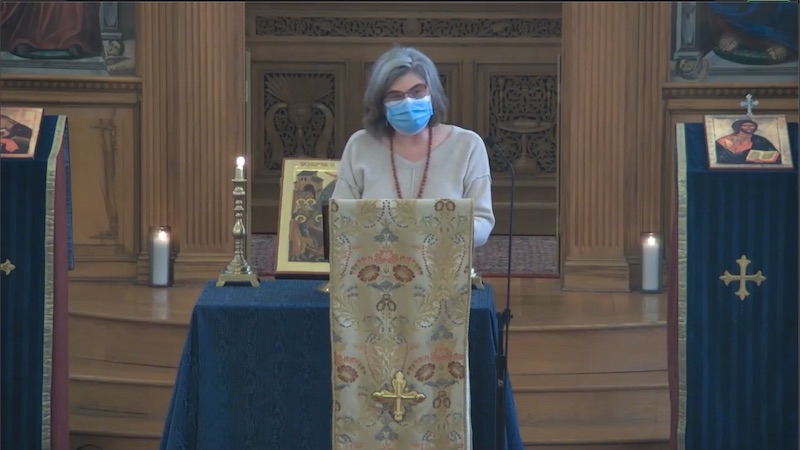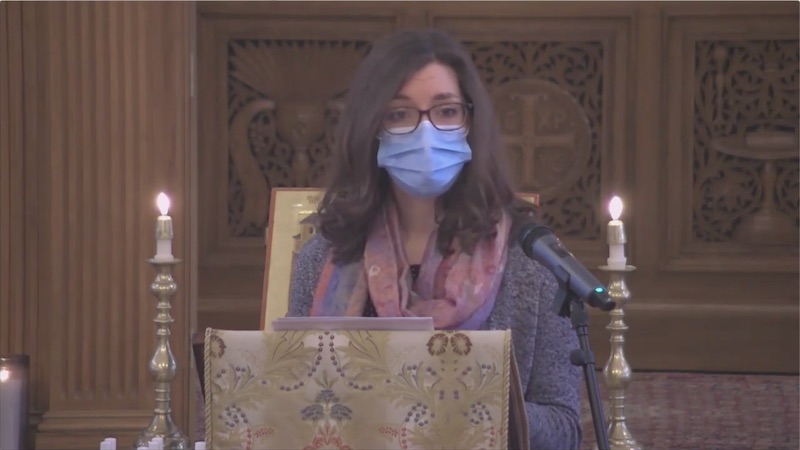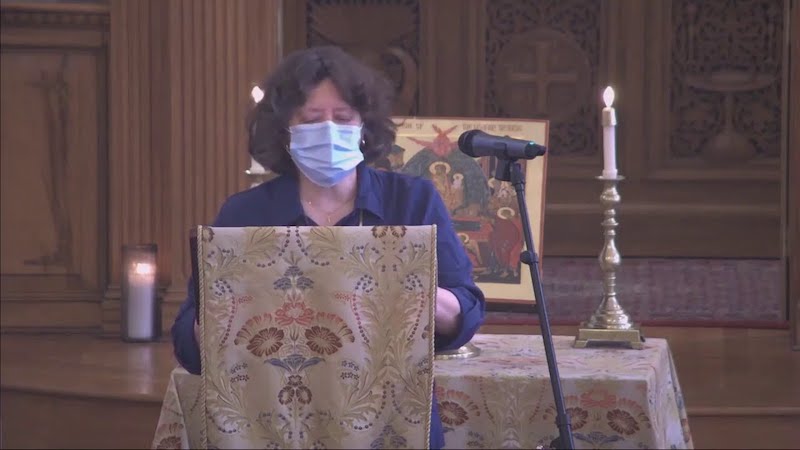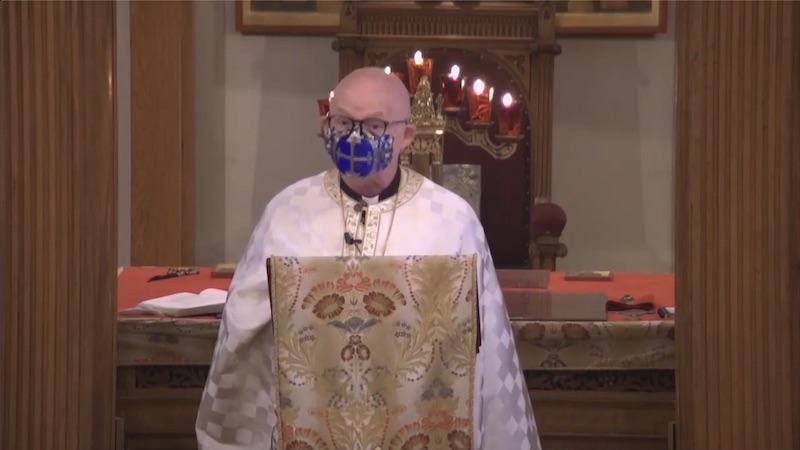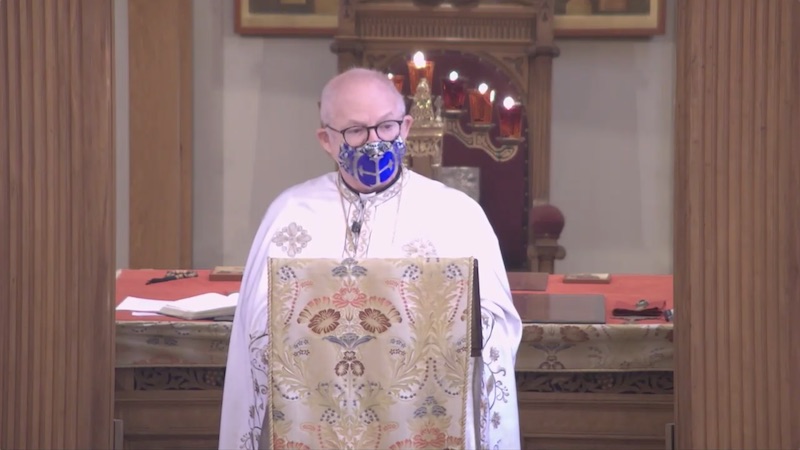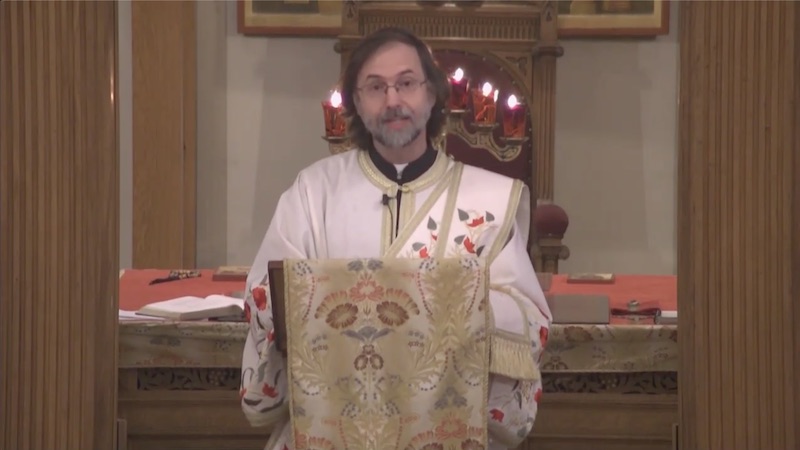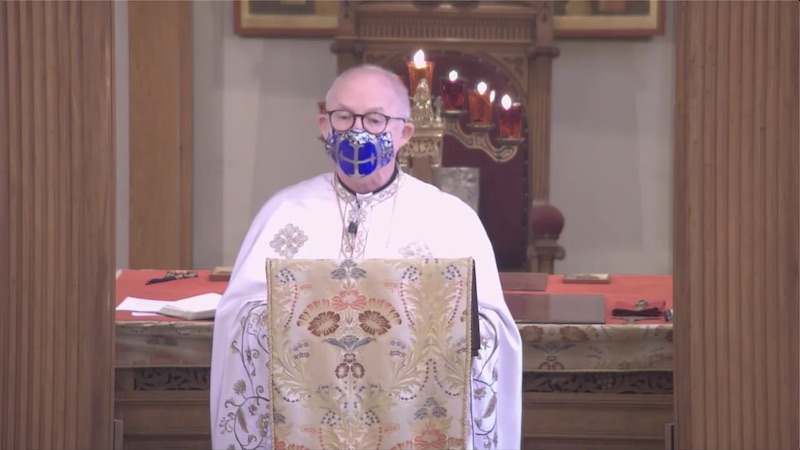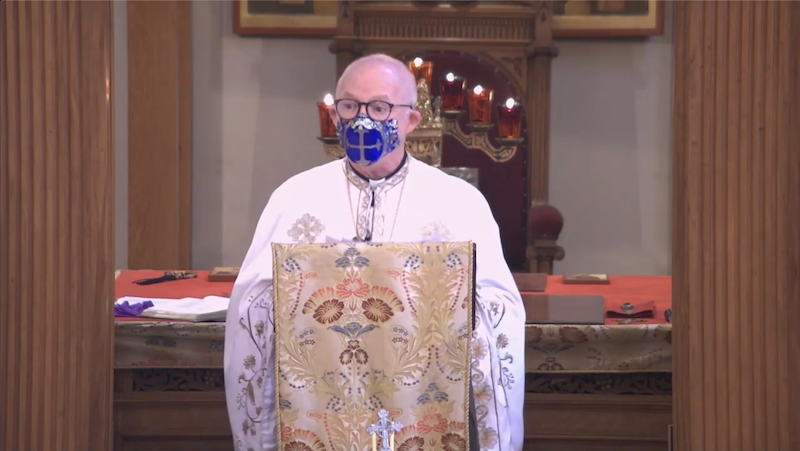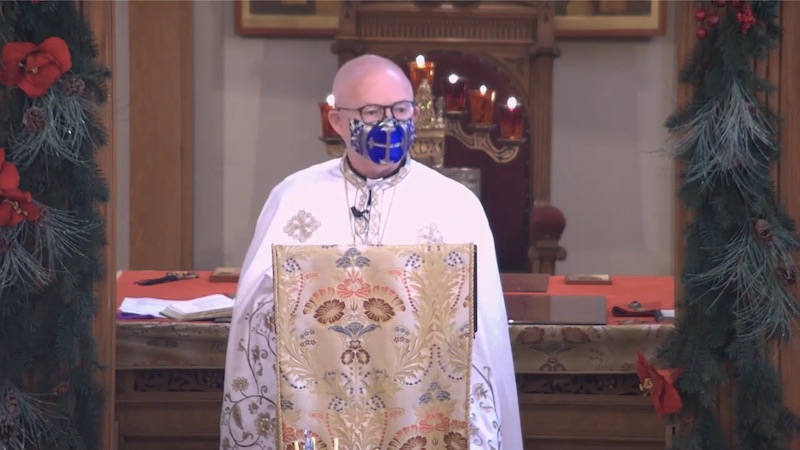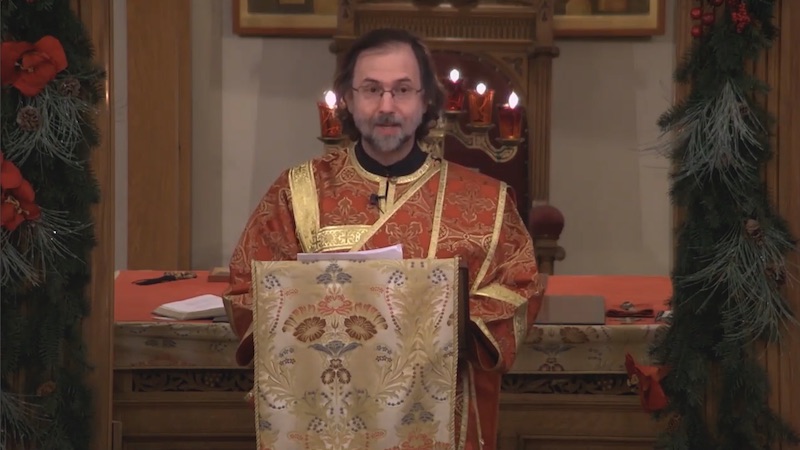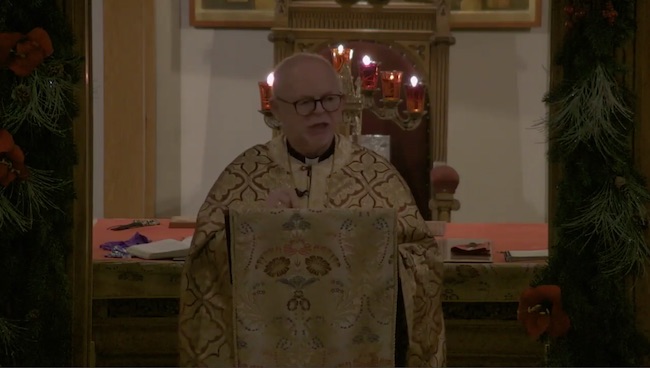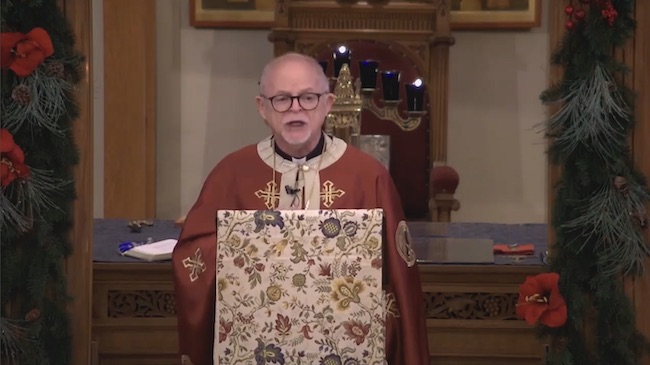Sermons from St. Mary Church
Life Uncircumscribed
May 30, 2021 - By Fr. Antony Hughes
Water is a symbol for new life, for cleansing and rebirth. It is from water that all life evolved and, in Christ, it is water that initiates us into the kingdom through the action of the Holy Trinity. I think it is true that the gift of Holy Baptism has yet to be unwrapped by many of us. To die and rise with Christ and to be sealed with the Holy Spirit is a very great blessing that often takes a lifetime (or longer) to realize.
On the Sunday of the Paralytic
May 24, 2021 - by Dn. Jeff Smith
We have all experienced loss, and the world has become more permeable. The veil between this world and the next has been torn. And yet, we are called to heal each other; we are called to have compassion and empathy with each other.
Indifference
May 16, 2021 - by Fr. Antony Hughes
Courage does not mean the absence of fear. Fear is very often the fuel for courage, the reason it is needed in the first place. Joseph risked his life asking Pilate for the Lord’s body. The Myrrh-bearing Women took off into the unknown.
No Walls
May 09, 2021 - by Fr. Antony Hughes
Faith. Deep and true faith means being open to what the truth turns out to be as we grow and learn and come more fully to understand. We come to know most fully through an experience of the Living God just like so many did when encountering the Crucified One risen from the dead.
The Image of the Cross
April 04, 2021 - by Fr. Antony Hughes
So, yes, the Cross is like a mandala, the Great Christian mandala, around which our lives and the cosmos revolve. As a focus of prayer and meditation it leads us into the Truth. The Cross grounds us both historically, psychologically and mystically. The Cross is the mandala of hope in the midst of our suffering.
In (Radical, Hard-Fought) Peace Let Us Pray
March 28, 2021 - by Andrea Popa
In the context of our liturgy, however, I would submit to you today, that peace is paradoxically - hard work - not tranquil, an act of purposeful engagement - not detachment, a hard-fought victory - not passive.
Loving God and Our Neighbor
March 22, 2021 - by Shannon Sakellariou
Our love for God is shown in our unity and our relationships. We can’t love our Lord apart from our neighbors. And loving others allows us to partake in the nature of Christ and thus love God.
Sacrifice and Praise
March 14, 2021 - by Christina Palis, M.Div
What if we understood the spiritual sacrifices that we are called to in Liturgy and our everyday life, sacrifices of praise and service and forgiveness and compassion, as a dance? I think of the circular dances of our Greek and Lebanese cultures where we move together, in coordinated steps, hand in hand. When we dance with others, we are mindful of them, we are receptive to their movements, we pay attention, and we are joyful.
Let us Give Thanks to the Lord… Reflections on the themes of the Liturgy – Part II
March 07, 2021 -
Even when humanity turned away, our God did not give up on us, but continues to care for us. God keeps reaching out to us to draw us back into communion with Him.
Present Sheep
March 07, 2021 - by Fr. Antony Hughes
There is only one Law of Christ: to love and to care for one another. There are no prerequisites or boundaries to this love. It is to be shared with the entire world by direct and concrete action.
Which Way?
February 28, 2021 - by Fr. Antony Hughes
The table is waiting for us and is richly laden and we are invited to partake of it. All of life is a eucharist waiting to happen. And we are invited to become part of it.
Justa and Berenice
February 14, 2021 - by Fr. Antony Hughes
From the Woman’s great suffering for her child was revealed a great enlightened faith, humility, compassion and courage. From the disciples, the very opposite. And Christ stood in the breech.
Parable of the Talents
February 07, 2021 - by Dn. Jeff Smith
God gave us hands and feet and speech, and strength of mind and body that we might use all these things for our neighbor's advantage. Let us contribute what God has given us, our wealth, our diligence and our care giving for our neighbor's advantage.
Lotus Petals in the Translucent Soul
January 31, 2021 - by Fr. Antony Hughes
From our lowly depths to the depths of his infinite mercy, one cries out to the other, the Prodigal Son to the Father, Zacchaeus to Jesus. And since we are too weak to run to him, he runs to us, forgetting and forgiving all the sins and wrongs and mistakes that make up the heavy burden that we bear, and drawing us into his and our true home. To find our true home, we must first find our true selves.
Diving into Life
January 24, 2021 - by Fr. Antony Hughes
The truth is that the largest part even of our own stories is unknown to us for we do not know why we think what we think and why we do what we do. We come to the Lord as many have done before us to discover who we are. For only God knows our hearts and finding him and finding ourselves is a simultaneous event.
A New Framework
January 17, 2021 - by Fr. Antony Hughes
All human beings share a common framing story. Created by God in his image to grow into his likeness is where that story begins. When fear becomes the core of the framing story disaster is the end result.
Eureka
January 10, 2021 - by Fr. Antony Hughes
God created all matter to bear the divine energy. This is the purpose and end of all things. Our prayers do not alter the elements, they alter our perception and enlighten our senses.
Prepare Ye the Way of the Lord
January 03, 2021 - by Dn. Jeff Smith
John is known as the greatest of all the prophets, because his whole life, even before his birth and even after his death, he constantly prepares the way for the Son of God to enter into the world.
The Lord Christ's Net
December 25, 2020 - by Fr. Antony Hughes
The Incarnation is the Great Conjunction of God and creation. The Word of God draws so close to us that there is no longer an in-between between God and us. There is not even room for the passing of an onion skin between the two. He is, say the Orthodox mystics, closer to us than our breath and our heartbeat.
The Eternal Gift of Union
December 20, 2020 - by Fr. Antony Hughes
The Word of God humbled himself. You could even say that Love humbled him. True love always serves the other. It asks nothing. It only gives. Love that does not lead to the Cross, where life is sacrificed for the good of the other, is not love.




